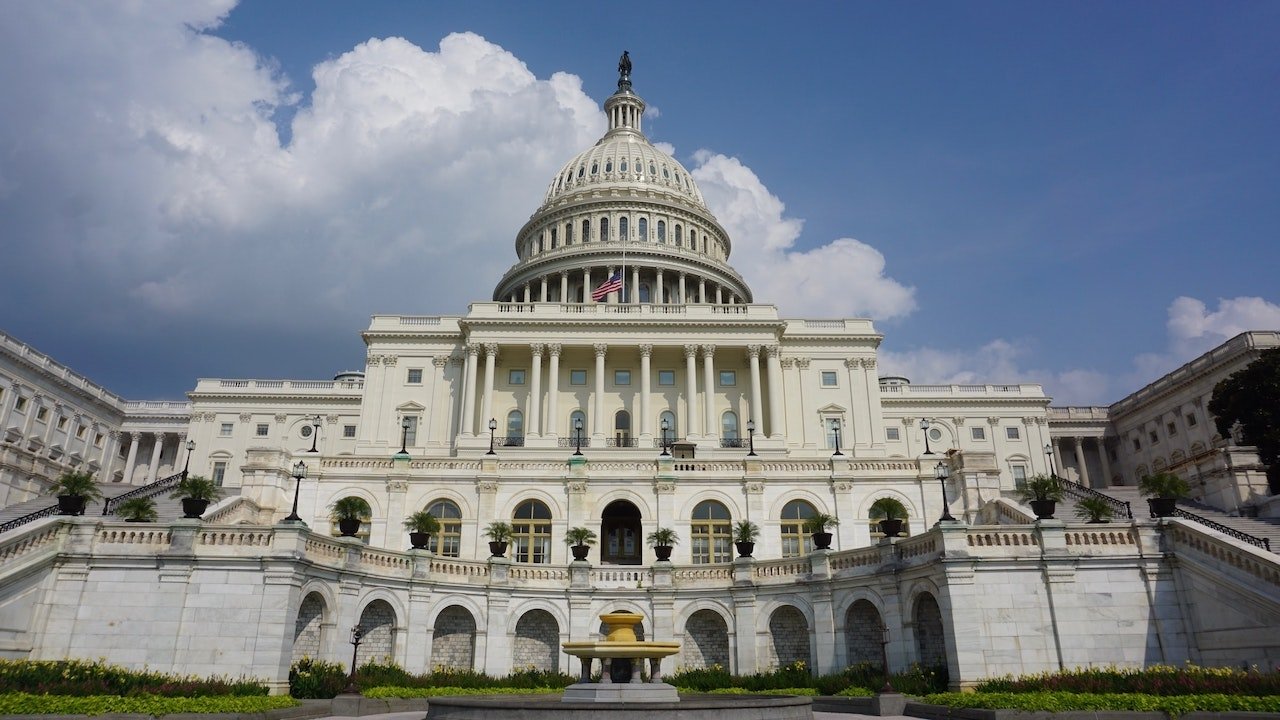Apple's recent App Store concessions have seemingly failed to appease U.S. lawmakers, who are still moving ahead with legislation to change how the app marketplace is run.
Back in August, a bipartisan group of U.S. Senators introduced a bill to rein in the power of app store operators. Since then, Apple has settled a major developer lawsuit and has changed some App Store policies. On Wednesday, Sen. Amy Klobuchar — one of the bill's sponsors — said that it's well past time for tech giants to "do the right thing."
"Though Apple has taken some small steps to respond to criticism of its anti-competitive conduct, they did not go nearly far enough," Klobuchar told Bloomberg. "There is growing momentum to pass the Open App Markets Act to finally address Apple and Google's twin monopolies, and I will continue working with my colleagues on both sides of the aisle to get it done."
The Open App Markets Act, which is also being sponged by Senators Richard Blumenthal and Marsha Blackburn, would place a variety of restrictions on major app marketplaces.
For example, the bill would bar companies from requiring developers to use first-party payment platforms. It would also prohibit punishing apps that use different pricing structures and bans app stores from leveraging non-public information to compete with smaller developers.
A few days after the Open App Markets Act was introduced in the Senate, a companion bill was also put forth in the U.S. House of Representatives.
According to Bloomberg, recent developments in countries like South Korea is building momentum for U.S. legislators to make their own changes. On Aug. 31, South Korea passed new regulations requiring Apple and Google to accept alternate payments in their respective app stores.
More senators are planning to sign onto the Open App Markets Act as co-sponsors, Bloomberg reported. The next step for the legislation is for it to get a hearing in the Senate Judiciary Committee.
Apple has made other concessions in recent months as well, including allowing so-called "reader apps" to direct users to their own websites for payments. That specific guideline change came in response to a probe by Japan's Fair Trade Commission.
Lobbying groups backed by both Apple and Google have also ramped up efforts to argue against the proposed legislation.
Apple and U.S. lawmakers are also awaiting the decision of U.S. District Judge Yvonne Gonzalez Rogers, who is presiding over the Epic Games v. Apple trial. Her ruling could mandate changes to the App Store, and she has signaled that her decision won't please either side of the legal battle.
Beyond Japan and South Korea, Apple is also under investigation by regulators and antitrust authorities in both Europe and the U.S. The Justice Department, for example, is continuing with its probe of Apple's App Store.
 Mike Peterson
Mike Peterson







-m.jpg)






 Marko Zivkovic
Marko Zivkovic
 Christine McKee
Christine McKee
 Andrew Orr
Andrew Orr
 Andrew O'Hara
Andrew O'Hara
 William Gallagher
William Gallagher

 Mike Wuerthele
Mike Wuerthele
 Bon Adamson
Bon Adamson




-m.jpg)



27 Comments
Apple has made such very minor adjustments, and so begrudgingly, that a far more impactful change is going to get mandated by legislators and courtrooms. It is now unavoidable IMO. Neither Apple nor Google shows any serious interest in doing so on their own, nor would they be expected to with a cash cow in the barn.
I am starting to believe that in the most cases the government only makes the situation worse. This is one of those situations. With “twin monopolies” - LOL, they have even coined a new term just to make their absurd case which hurts free market.
Users should be able to load apps from alternative App Stores.
I guess that most users will stay with Apple's App Store, but it would make possible to use apps that have been banned by Apple or don't comply with some terms (like emulation).
If Apple makes this right (apps signed with a certificate and sandboxed) it should also be secure (beside from bugs in the sandbox).
At this stage it's in Apple's interest for changes to come about via legislation, and it's a situation that bears some similarity to Apple's tax arrangements.
Apple could make changes to the App store (or their tax arrangements) - however both would certainly be sub-optimal for shareholder value. There are numerous consequences to making such changes if not specifically required to by law.
Secondly Apple shouldn't jump the gun - it's clear that there are political motivations at play: it's unlikely that a politician looking for "a win" is going to reverse course no matter what changes Apple introduces - frankly that's just politics, hence statements along the lines of "
Also worth keeping in mind here is that there's no consumer groundswell asking for these changes: Apple's devices and ecosystem have enviously high consumer satisfaction.
Meanwhile there are plenty of competitor companies lobbying for the changes to accelerate their own profits.